Master of Science in Nursing in Family Nurse Practitioner
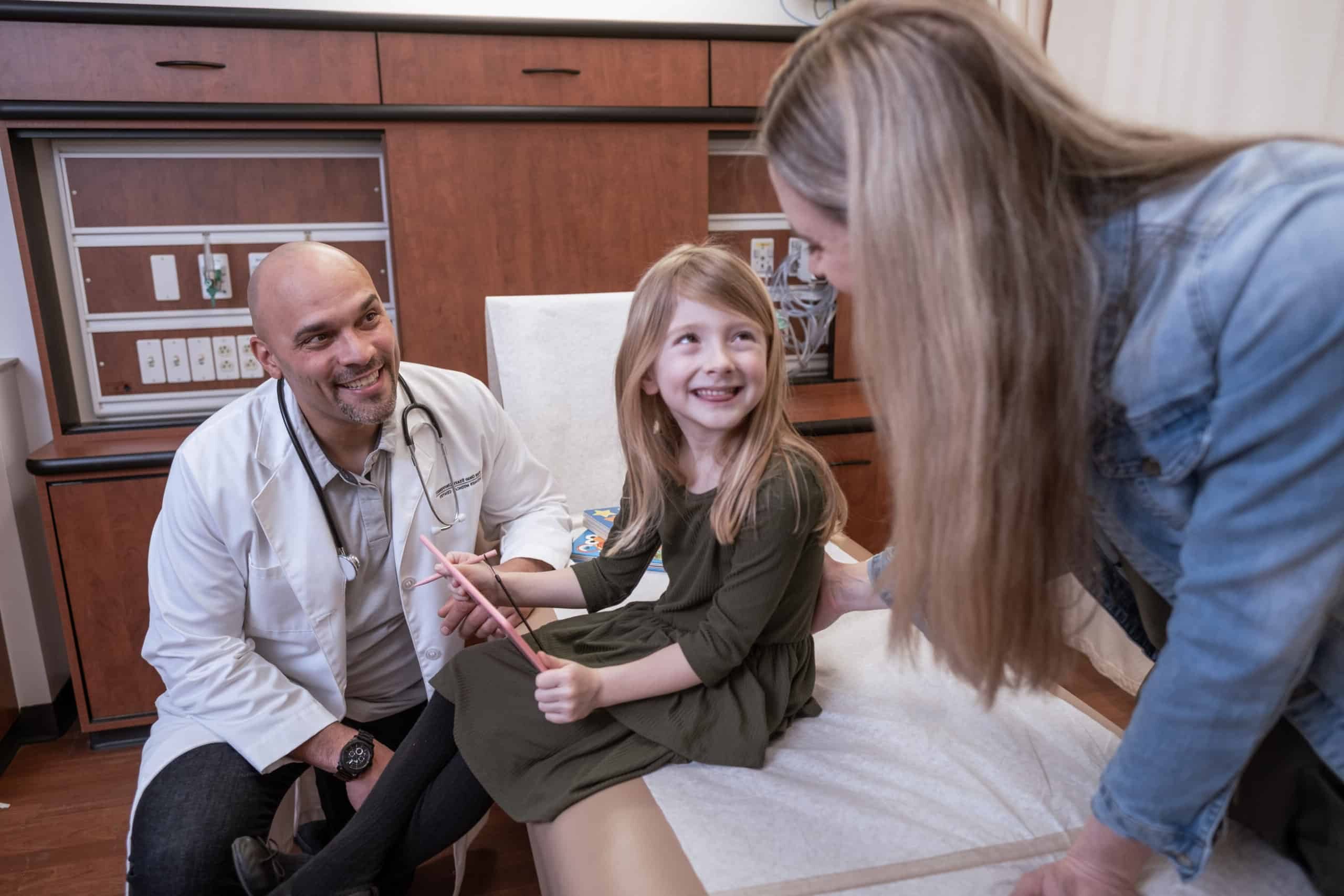
March 1, 2026
August 25, 2026
Overview
The Master of Science in Nursing – Family Nurse Practitioner (FNP) online program at Ohio State is designed for registered nurses seeking to advance their careers by becoming highly skilled family nurse practitioners. This flexible online program allows students to balance their education with professional and personal responsibilities while gaining the expertise needed to provide comprehensive primary care to patients of all ages. Ohio State’s FNP program is ranked #3 in the nation by U.S. News & World Report and is part of Ohio State’s online MS in Nursing programs ranked #1 in the country, also by U.S. News & World Report.
Students in the FNP program receive rigorous family nurse practitioner education, covering essential topics such as advanced health assessment, pathophysiology, pharmacology, and evidence-based practice. The curriculum prepares graduates to diagnose and treat a wide range of health conditions, promote disease prevention, and improve patient outcomes in diverse healthcare settings.
With a combination of online coursework and in-person clinical experiences, students benefit from Ohio State’s nationally recognized faculty, cutting-edge resources, and a strong support network. Our FNP program, ranked among the best online programs nationally by U.S. News & World Report, prepares graduates to take on leadership roles in primary care, meet the growing demand for advanced practice nurses, and make a meaningful impact in health care. It adheres to guidelines from the National Organization of Nurse Practitioner Faculties (NONPF) and the American Association of Colleges of Nursing (AACN).
Upon graduating from this program, you are eligible to sit for the FNP national certification exam.
Official Recognition & Accreditation
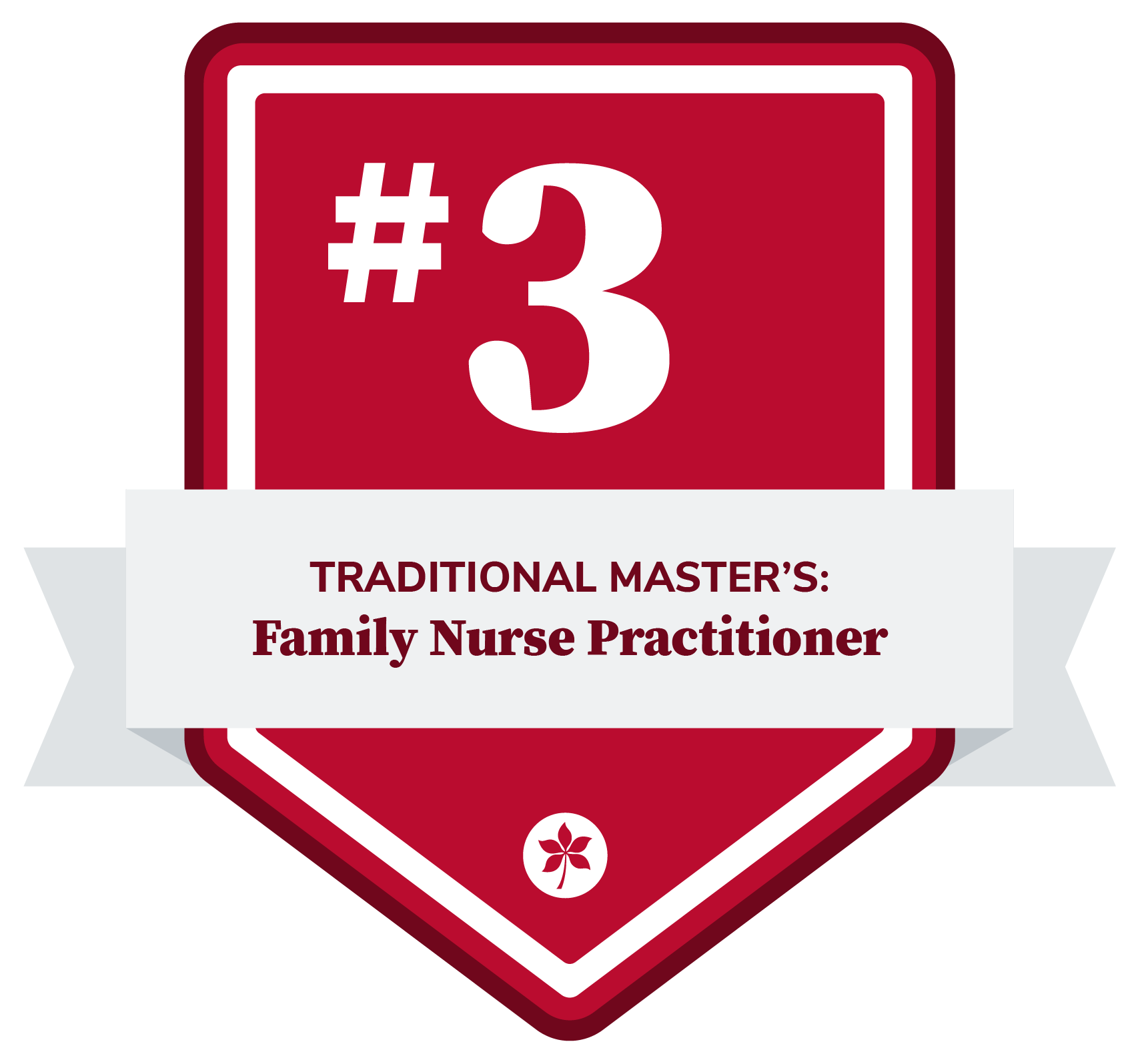
#3 FNP Program
The Ohio State University’s Family Nurse Practitioner MS in Nursing program is ranked #1 in the country by U.S. News & World Report.
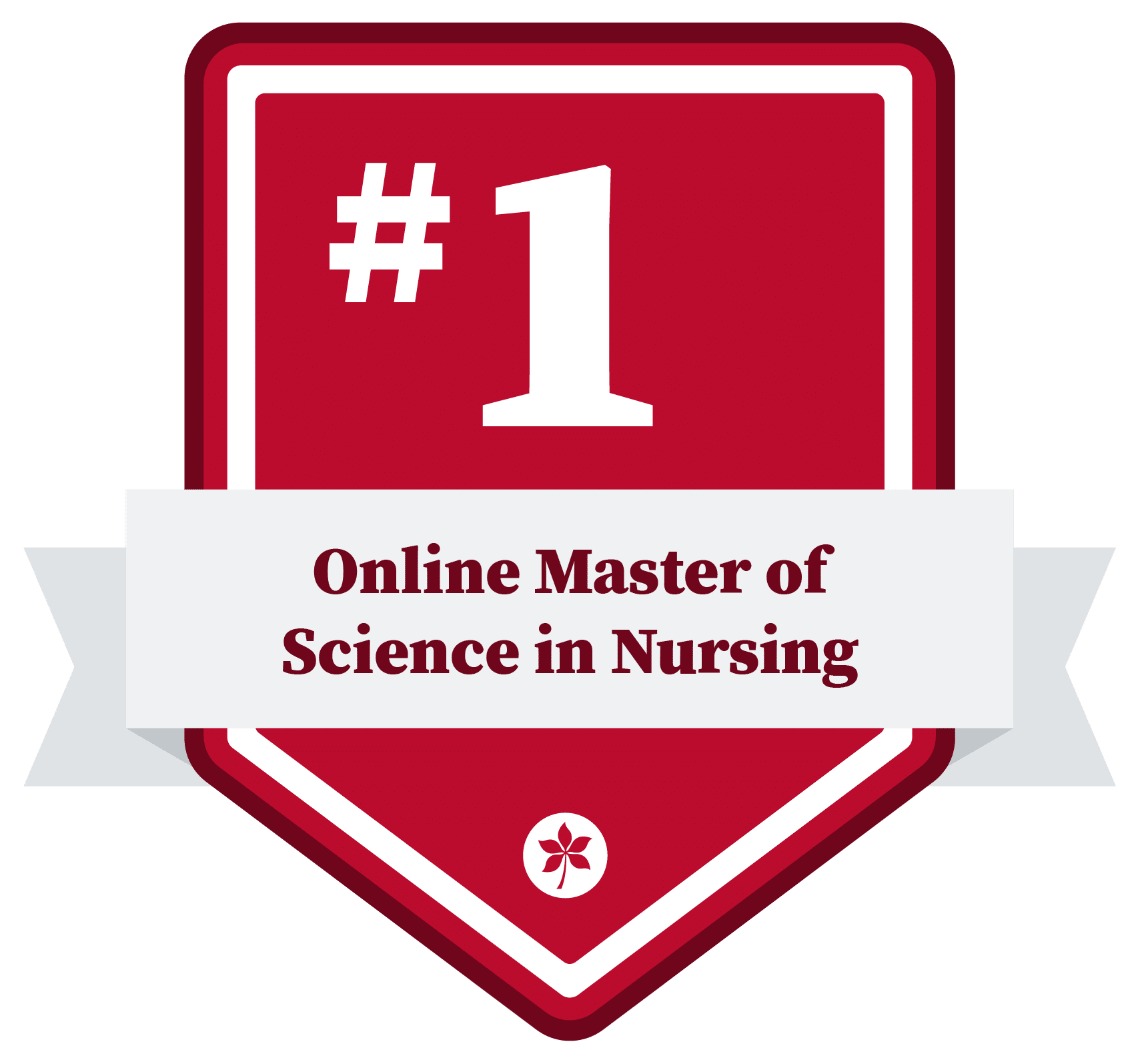
#1 Program
The Ohio State University’s MS in Nursing program is ranked #1 in the country by U.S. News & World Report.
Frequently Asked Questions
Each Ohio State Online Program is unique and have their own timelines for completion. This also varies based on how many credits you choose to take each semester. For more information or to estimate how long it will take to complete your degree, contact an enrollment advisor.
State authorization refers to regulations that impact online and on-ground education offered across state lines and programs that lead to state licenses or certifications. Compliance with these regulations ensures that an Ohio State degree will be recognized. If you plan to pursue licensure or certification in a state other than Ohio, please review each state’s educational requirements for licensure or certification. Each state has unique authorization requirements, so Ohio State must review each state’s laws to ensure that the university is in compliance. At Ohio State, we have a team dedicated to researching regulations, seeking and maintaining compliance, communicating changes in authorization status, and disclosing state licensure and certification information. For more information on your specific state’s licensing board, please refer to State Authorization.
Applicants must select either the full-time or part-time option at the time of application. Please be aware that while we will try to accommodate your requested status, such accommodation is not guaranteed and you may be admitted to the alternate enrollment status.
MS students usually waive coursework rather than transfer credit. Only upon admission to the program will your courses be reviewed by the faculty to determine how they could apply to the program’s course requirements. There isn’t a limit on how many courses a student can petition, but clinical coursework cannot be waived. For more information reach out to the graduate program manager.
Related Content
Related Content

Can you really get a nursing degree online?

4 best jobs for the future

Top 4 Things to Ask When Considering an Online Program
Academic Calendar
Ohio State’s online MS in Nursing program admits online students once-per-year for the Autumn semester.
Academic Calendar
Ohio State’s online MS in Nursing program admits online students once-per-year for the Autumn semester.
Admission Criteria
Students must have a Bachelor of Science in Nursing (BSN) degree from an ACEN/CCNE/CNEA-accredited institution to be eligible to apply. Applicants must also have an active RN license and a minimum of a 3.0 cumulative GPA on a 4.0 scale in the last degree earned relevant to the program of study.
Who We Are Looking For
Your application will receive a holistic review, meaning all aspects of who you are as an applicant will be considered including your academic preparedness, professional background, formative life experiences, and your unique strengths and attributes. The following list of applicant attributes and experiences is not all encompassing but is meant to help guide you in highlighting your strengths as you prepare your written application materials and recorded online interview.
- Understanding of the advanced practice nurse role
- Experience with your chosen population – Leadership, teamwork, and collaboration
- Community engagement
- Diversity of thought and experiences
- Resilience, growth, critical thinking
- Emotional intelligence, communication skills
- Personal attributes like humility, professionalism, compassion
- Commitment to the nursing profession
How to Apply
You can complete an application online at Ohio State’s Graduate and Professional Admissions office website. A non-refundable $60 fee is required at the time of submission of the application.
In the online application, you will be required to select your Specialization for the program, as well as whether you will attend full-time or part-time and whether you will attend on-campus or through distance learning, if that option is available for your chosen specialization. You can find a list of the available specializations here.
Additional information for internationally educated applicants can be found on Ohio State’s Graduate and Professional Admissions website for international applicants.
To complete your application and verify your degree and undergraduate GPA, you must submit transcripts from all educational institutions you have attended.
When applying:
- You may upload scanned copies of official transcripts, diplomas, or degree certificates to the online application system. Note: You do not need to submit transcripts for coursework or degrees earned from The Ohio State University.
- These scans help form a complete application packet, but they do not replace the need for official documents.
What is not accepted:
- Advising reports
- Unofficial transcripts or scans labeled “UNOFFICIAL”
- Documents with a URL across the top
- Transcripts missing the institution’s name, seal, stamp, or GPA
These types of documents will not be used for degree verification or GPA calculation.
Exception: You do not need to submit transcripts for coursework or degrees earned from The Ohio State University.
Your resume or curriculum vitae (CV) should be in a similar format to what you would use for a job application. You should include your previous education, professional experiences, community service, volunteer activities, publications, research and leadership experiences on your resume or CV. You may submit this document at the time of application or after by way of the Admissions Uploader.
The purpose and goals statement is an opportunity to introduce yourself, to express your interest in advanced nursing practice and to demonstrate your writing skills. Here are some recommended questions to consider and to address when composing your statement:
- What specifically are your academic and career goals?
- How did you decide to seek graduate education in this specialty area?
- How have your life experiences prepared you for a master’s degree and/or to be an advanced practice nurse in your selected specialty?
- How do you see yourself as a leader and advocate for patients in your future practice setting?
Your statement should not exceed three pages and use a standard format of single-spaced, 12-point font, with one-inch margins. You may submit this document at the time of application or after by way of the Admissions Uploader.
You are required to complete an interview through an online portal called HireVue. You will answer a few questions and your responses will be recorded. This interview can be completed at any time during the application window. However, we ask that you do so only after you have completed and submitted your application. Note: You must complete the recorded online video interview before the application deadline. For further details, instructions and links to the online portal, go to the interview.
During the application process, you will be asked to provide the names and email addresses of three recommenders. Once the application is submitted, an email will be automatically generated and sent to your recommenders with further instruction on how to submit their letters of recommendation. We encourage you to submit your application far in advance of the deadline so that your recommenders have ample time to upload their letters. Letters of recommendation should not be mailed and you may not personally submit letters of recommendation.
It is suggested that at least two of the three letters of recommendation come from academic sources. Supervisors are also a good source for recommendations. We suggest providing your recommenders with information in advance on the degree and specialty to which you are applying and with a copy of your purpose and goals statement. Ask that they address your potential for success in a rigorous graduate program and what attributes and experiences they feel will allow you to excel as an advanced practice nurse in your chosen specialty. Finally, make them aware of the submission process and the application deadline by which they must submit their letters.
Details regarding what English Proficiency tests are acceptable, the scores required, and how to submit scores may be found on The Ohio State University Graduate and Professional Admissions office’s website.
If you completed the equivalent of a bachelor’s degree or higher at an institution outside of the United States, you must submit a course-by-course credential evaluation that verifies U.S. degree equivalency and includes a cumulative Grade Point Average (GPA) on a 4.0 scale.
We will also accept evaluations from the following approved agencies:
- World Education Services (WES)
- SpanTran (The Evaluation Company)
- Educational Credential Evaluators (ECE)
- International Education Evaluations (IEE)
- Josef Silny & Associates (JS&A)
- International Education Research Foundation (IERF)
- International Consultants of Delaware (ICD)
The course-by-course credential evaluation must include:
- Verification of U.S. degree equivalency
- A list of completed coursework with credit hours and grades
- Calculation of a cumulative GPA on a 4.0 scale
If you are currently or have been previously enrolled in a degree granting graduate program at The Ohio State University for any length of time, you would be considered a Graduate Intra-University Transfer Student. Be sure to choose the appropriate application for “current or former” Ohio State students after following the Apply link. In addition to that online application, you must complete a Supplemental Application. This separate application must be submitted to the College of Nursing directly at CON-gradrecords@osu.edu. Choose any of the following options to access this application:
- MS Word Document: Supplemental Traditional Master’s Application (To download, select “Save”)
- PDF: Supplemental Traditional Master’s Application

The Ohio State University participates in the State Authorization Reciprocity Agreements (SARA).
SARA is a national initiative that increases student access to distance education courses and programs while maintaining compliance with state regulations. Institutions participating in SARA can offer educational opportunities in all 49 SARA member states, the District of Columbia, the U.S. Virgin Islands and Puerto Rico without seeking individual approval in each state.
California is not a SARA member state, however, OSU may offer online courses and programs to students located in California under the California Private Post-Secondary Act of 2009.
The Application Process
Once you understand your program’s admission criteria, please note the application deadline. You’ll need a quiet space and a variety of materials for your application. To learn more, please see our Admissions page for the full process. Ready to Apply? Find your application here.
Career Outlook
The Master of Science in Nursing – Family Nurse Practitioner degree from Ohio State offers a strong career outlook due to the growing demand for primary care providers. FNP graduates are well-prepared to work in diverse settings, including family practices, clinics, hospitals, and community health organizations. With their expertise in managing patient care across the lifespan, FNPs play a crucial role in addressing healthcare needs and improving access to care. The program’s rigorous training equips graduates with the skills needed for leadership roles in primary care and offers opportunities for specialization and advancement in a dynamic and evolving healthcare landscape.
For the third consecutive year, nurse practitioner earned the No. 1 spot in U.S. News & World Report’s Best Healthcare Jobs rankings, reflecting strong and growing national demand for the career.
Top Occupations by Median Income
What They Do
Diagnose and treat acute, episodic, or chronic illness, independently or as part of a healthcare team. May focus on health promotion and disease prevention. May order, perform, or interpret diagnostic tests such as lab work and x rays. May prescribe medication. Must be registered nurses who have specialized graduate education.
Work Activities
Maintain complete and detailed records of patients' health care plans and prognoses. Develop treatment plans, based on scientific rationale, standards of care, and professional practice guidelines. Provide patients with information needed to promote health, reduce risk factors, or prevent disease or disability.
Wage Range
- Entry Level: $97,960
- Mid Level: $129,210
- Senior Level: $169,950
Job Outlook
Bright
Projected Growth
46.3%
Related Careers
- Advanced Practice Psychiatric Nurses
- Clinical Nurse Specialists
- Emergency Medicine Physicians
- Family Medicine Physicians
- Registered Nurses
Job Sectors
- Medicine and Dentistry
- English Language
- Biology
- Psychology
- Customer and Personal Service
National occupational information in Ohio State Online’s Career Outlook tool is sourced from O*NET Online and the U.S. Bureau of Labor Statistics (BLS). The median annual wage displayed to the right of each occupational title above is based on the BLS Employment Projections program. Outlook and percent change indicate projected growth or decline over the next 10 years.
Curriculum
Guided by world-class faculty and dedicated mentors, you’ll gain clinically rigorous, evidence-based training in Ohio State’s online MS in Nursing-Family Nurse Practitioner program that will prepare you to lead in today’s health care environment. You’ll gain experience in a wide range of settings, from community primary care sites to Ohio State Wexner Medical Center’s nationally recognized teaching hospitals.
Below is a sample curriculum plan for part time students of the FNP track. Most students complete the program part time in seven semesters, while full-time students finish in about five. Although the part-time plan offers flexibility for working nurses, it does include several semesters of full-time coursework to maintain progression. Depending on course and clinical sequencing, credit loads may vary from 5 to approximately 11.5 per term.
On-campus requirements: Online students are required to attend 2 day on-campus visits during the last three semesters of their program for in-person learning and evaluation of clinical skills. These required on-campus learning days will be pre-scheduled so students can make travel plans in advance.
Required clinical hours: Students are required to complete a total of 675 clinical hours during the program.
Autumn, Year 1
Analysis of theories and research regarding alterations of health states across the life span with an emphasis on pathophysiological processes.
Examination of leadership styles to develop and maximize the DNP leader’s role and interprofessional collaboration among diverse teams to positively impact health outcomes. Focus on theories and principles of communication, leadership, interprofessional collaboration, change management, role development and systems thinking.
Spring, Year 1
Explores advanced concepts of collaboration, design, leadership, implementation and evaluation of quality improvement initiatives in health care utilizing information technology strategies.
Critical analysis of population-based factors that impact population and personal health care including how structural racism and the social determinants of health contribute to health disparities and how health behavior theories, framework, and evidence-based strategies lead to improvements to community health outcomes.
Autumn, Year 2
Introduction to and application of evidence-based practice (EBP). Includes EBP steps, competencies, and strategies for mentoring and leading integration and synthesis of the EBP process for improving practice and outcomes.
Examination of policymaking at the system, local, state, and federal levels to influence evidence-informed policy change affecting health care.
Spring, Year 2
Development of advanced health assessment skills. Emphasis on acquisition of pertinent assessment data across the life span for advanced nursing care for multiple specialties.
Pharmacokinetic principles and clinical application and principles of the use of drugs and therapeutic devices in the prevention of illness and maintenance of health. Meets criteria for APN’s prescribing in Ohio.
Summer, Year 2
Focus on primary healthcare of individuals and families across the life span. Emphasis on integration of scientific foundations, social determinants of health, and interprofessional leadership to manage complex healthcare needs of patients.
Analysis of theories and research regarding alterations of health states across the life span with an emphasis on pathophysiological processes.
Autumn, Year 3
Focus on primary healthcare of individuals and families across the life span. Emphasis on integration of scientific foundations, social determinants of health, and interprofessional leadership to manage complex healthcare needs of patients.
Spring, Year 3
Focus on primary healthcare of individuals and families across the life span. Emphasis on integration of scientific foundations, social determinants of health, and interprofessional leadership to manage complex healthcare needs of patients.
This course will prepare APRN students for transition to advanced nursing practice at the DNP level and provide application of evidence-based practice knowledge, skills, and abilities for advanced practice nurses in the care of specialty population.
Program Faculty
While taking the next step in their nursing careers in this MS in Nursing FNP online program, students will learn from and collaborate with world-class faculty and peers from across the country.

Heidi Bobek DNP, APRN-CNP
Assistant Clinical Professor, Director, Family Nurse Practitioner Specialty Track
Dr. Heidi Bobek is an Assistant Clinical Professor and the specialty track director for The Ohio State University College of Nursing’s Family Nurse Practitioner program.
Janis Brewer DNP, APRN-CNP
Clinical Assistant Professor of Practice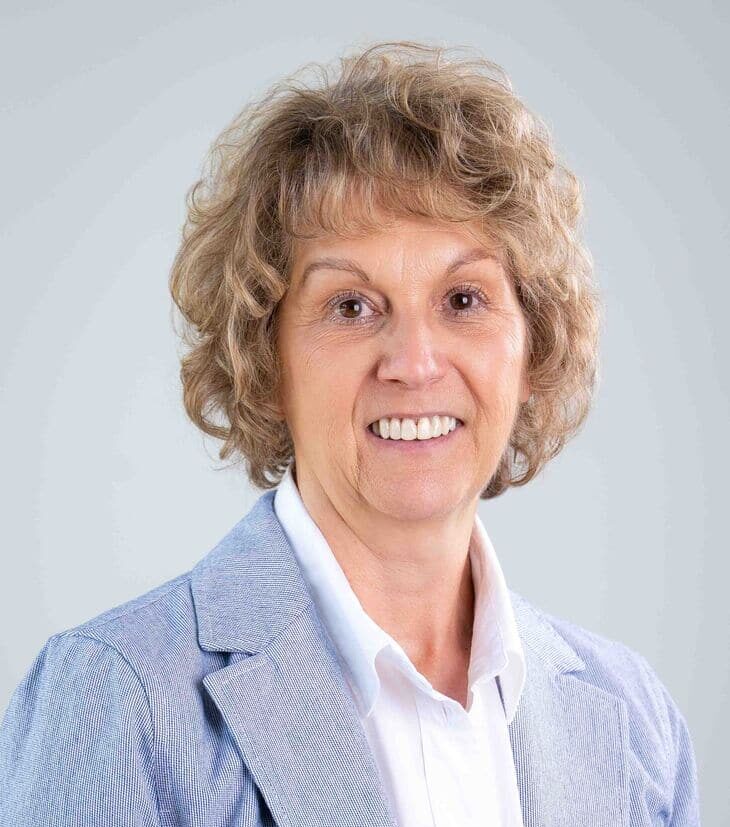
Jennifer Dush PhD, APRN-CNP
Assistant Clinical Professor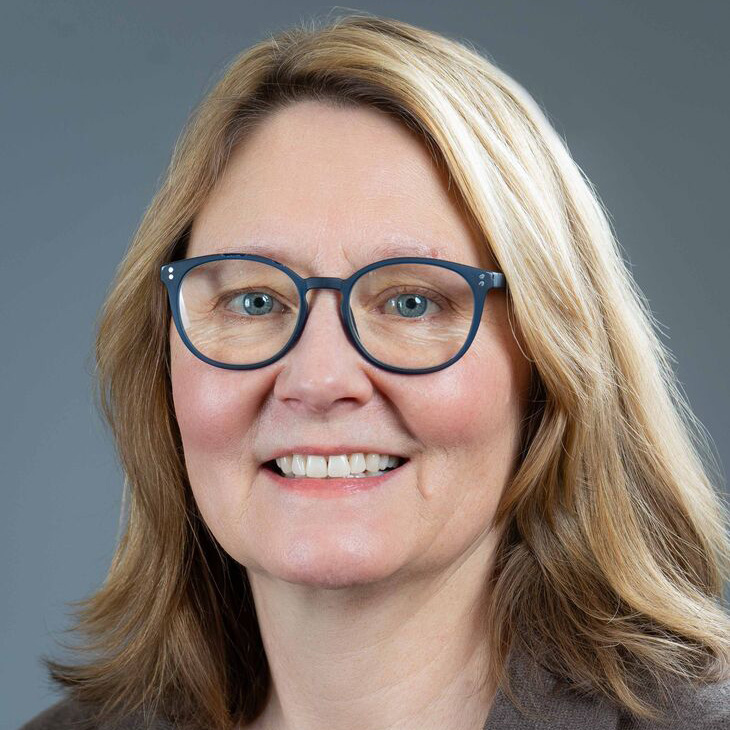
Monica Lee DNP, APRN-CNP
Assistant Clinical Professor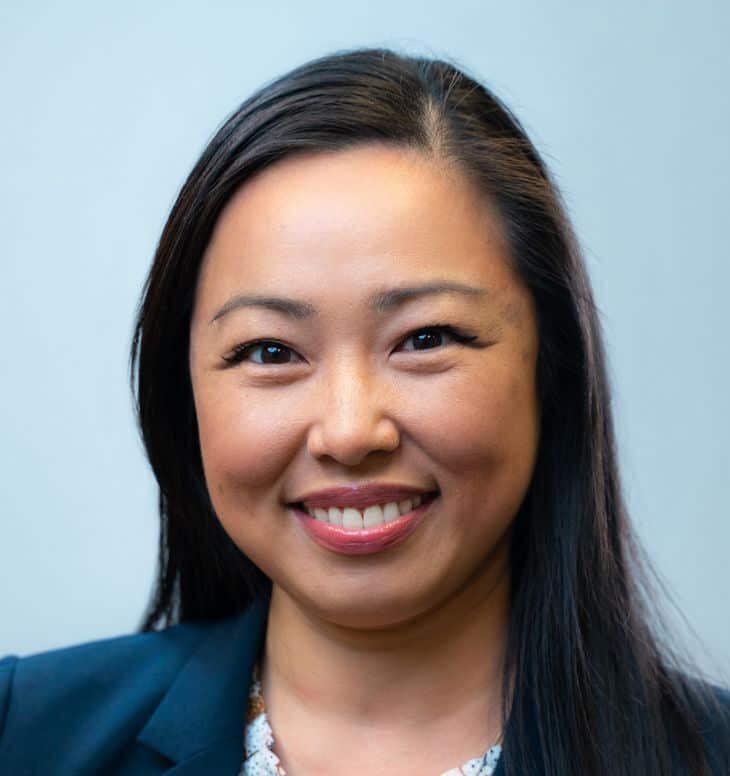
Alendré McGhee DNP, APRN-CNP
Clinical Assistant Professor of Practice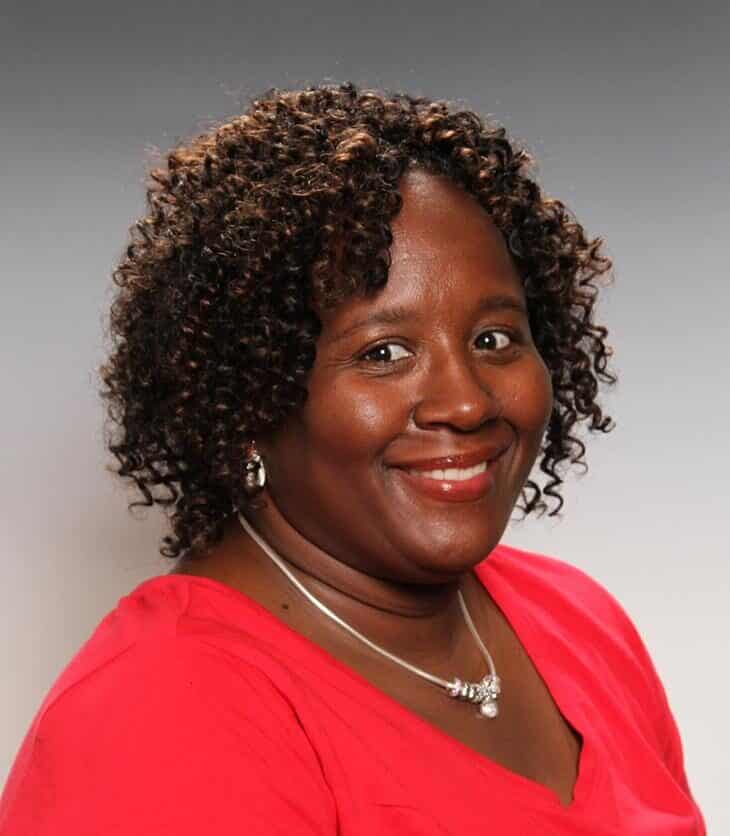
Matthew Newcomer DNP, APRN-CNP
Clinical Assistant Professor of Practice
Katie Roll DNP, APRN-CNP
Clinical Assistant Professor of Practice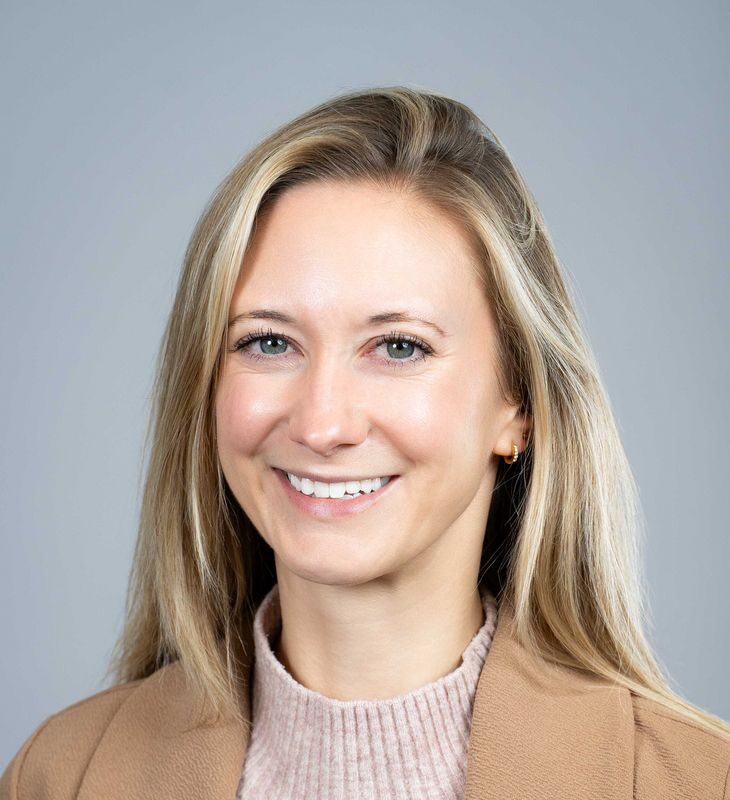
Testimonials
Find out how online learning has helped Ohio State students exceed in their personal and professional lives.

“With Ohio State’s program, I have ceaseless opportunities for professional involvement and engagement and I have been able to engage in evidence-based practice projects and connect with accomplished leaders and practitioners that has ultimately prepared me for my future as a nurse practitioner.”
Tuition fees are subject to change. The table above serves as a guide and not an official bursar’s bill. Full-Time costs are total tuition costs per semester.
Financial Aid Resource
Financial Aid Resource
Get Started
Connect with a knowledgeable Enrollment Advisor who can help answer your questions and explain different aspects of the more than 80 online degrees and certificates offered at Ohio State. They are here to help you on your education journey.


